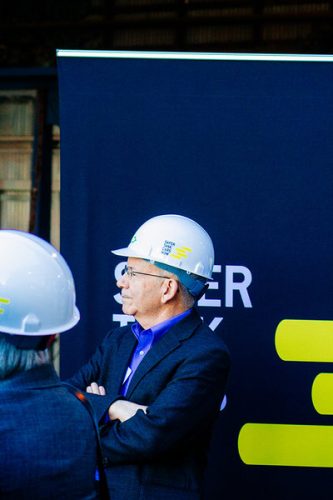
As Oregon environmentalists continue the decades-long fight to stop the Jordan Cove liquefied natural gas terminal and its associated 230-mile natural gas pipeline running through southern Oregon to Coos Bay, Congress is fighting over just how to regulate fossil fuel pipelines.
Two Oregon congressmen are having trouble agreeing on two simple words pertaining to the SAFER Pipelines Act of 2019, which aims to better hold gas and oil companies responsible for current and future pipeline projects.
Current law requires proof that operators acted “knowingly and willfully” in violation of pipeline safety laws in order to be prosecuted for environmental damage. The bill, introduced Nov. 15 by Rep. Peter DeFazio (D-OR) and Rep. Frank Pallone (D-NJ), attempts to strengthen the language of pipeline safety laws to include the word “recklessly” when deciding whether pipeline operators are at fault for environmental disasters.
Four days later, Oregon Rep. Kurt Schrader, who sits on the House Committee on Energy and Commerce, amended Section 12 of the bill to read “knowingly or willfully,” instead of “knowingly or recklessly” in relation to whether pipeline operators can be blamed for large disasters. Eugene Weekly has reached out to Schrader for comment.
Section 12 would not result in criminal liability for companies that are making good faith efforts to comply with pipeline safety regulation, according to DeFazio. This exact change to specific language has been made before with aircraft safety standards after a jet crashed in Florida, killing 110 people.
ValuJet Flight 592 crashed into the Everglades 11 minutes outside of Miami in 1996. The National Transportation Safety Board found that SabreTech, an airline maintenance company, failed to properly prepare, package and identify unexpended chemical oxygen generators. All but one of the charges against SabreTech were dropped because prosecutors could not prove that the company’s actions were knowing and willful.
Meanwhile, the House Committee on Transportation and Infrastructure also marked up the SAFER Pipelines Act of 2019, keeping Section 12 the way DeFazio had intended. On Nov. 20, the bill passed the committee, 32-26, with the word “recklessly” included. Both committees must now work out the differences in the bills to determine the legislation that will move forward to the House floor for a vote. The bill also reinstates a 2016 Environmental Protection Agency final rule that set limitations on methane emissions across the natural gas and hazardous liquid pipeline sector.
The amendment of the SAFER Pipelines Act of 2019 highlights the different ways two Oregon representatives plan on addressing the growing number of pipelines and their impact on the global climate crisis.
“Frankly, it has been difficult to prosecute safety violations of pipeline operators under current law,” DeFazio says. “The SAFER Pipelines Act of 2019 requires that an individual or company who makes an operating decision with deliberate indifference or conscious disregard for the consequences of their actions can be prosecuted.”
“It’s a commonsense principle that Congress recognized and applied to the hazardous materials industry — we simply provide the same standard for criminal violations in this bill,” DeFazio says.
The Federal Energy Regulatory Commission issued its final environmental analysis of Jordan Cove natural gas export project and pipeline on Nov. 15, saying it would have “temporary, long-term and permanent impacts on the environment.” The analysis is neither an approval nor a denial of the project.